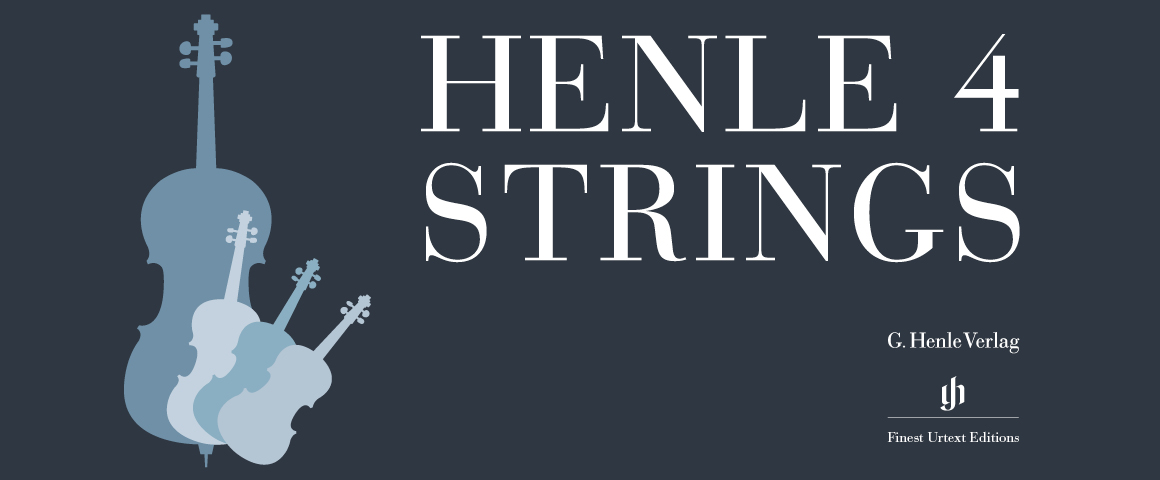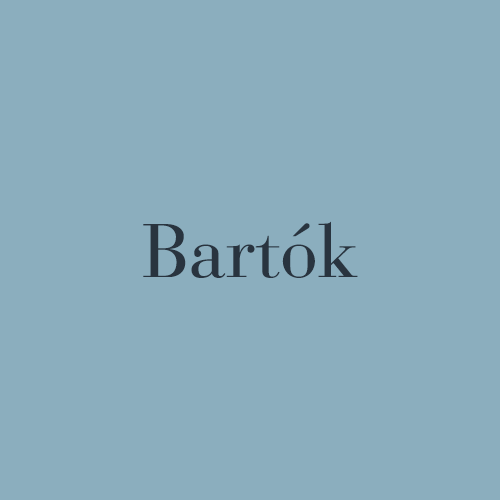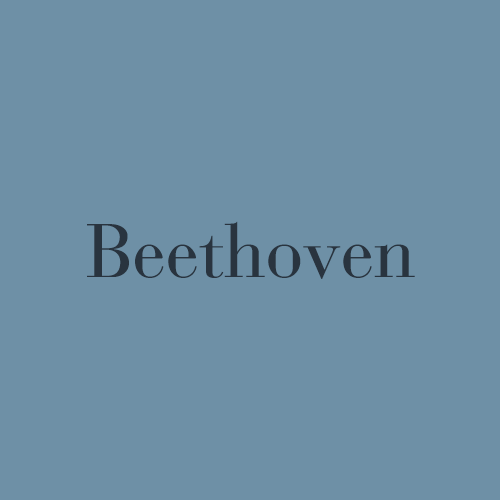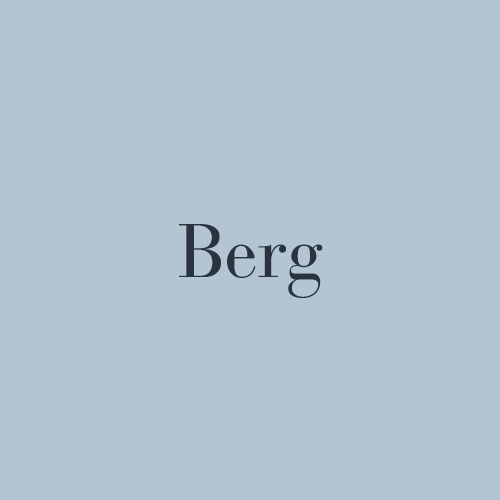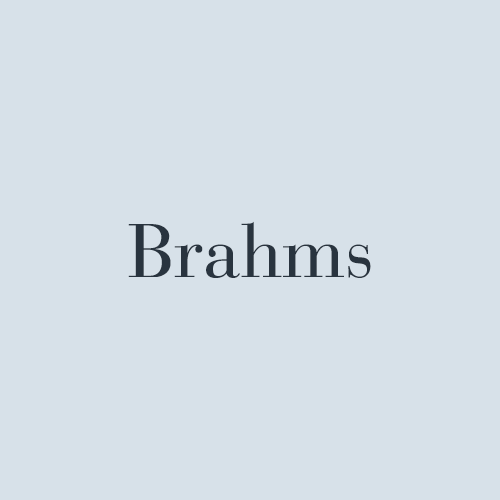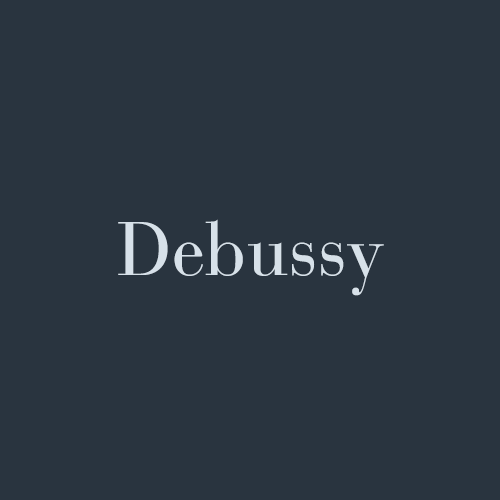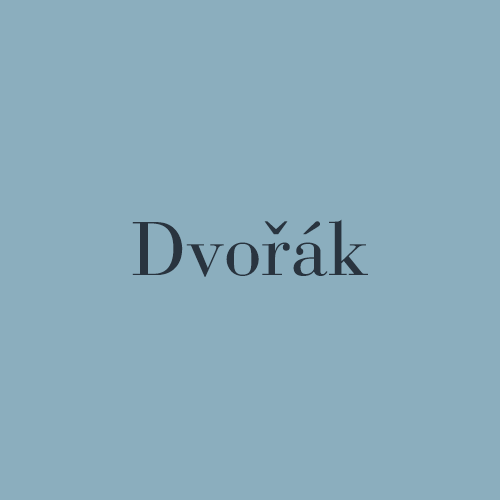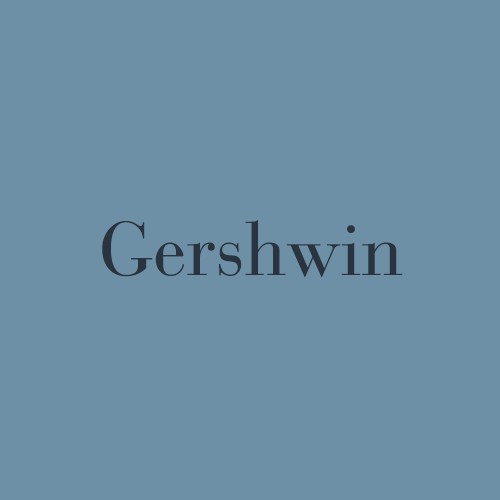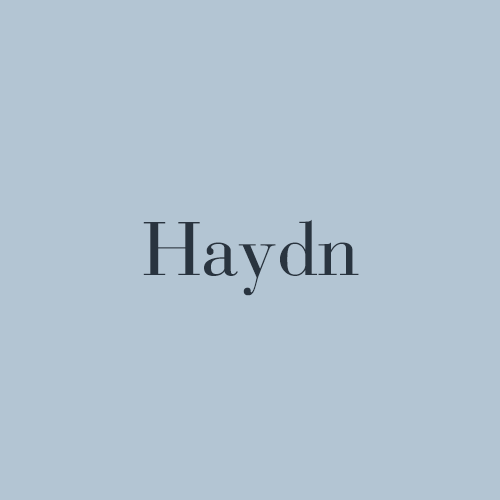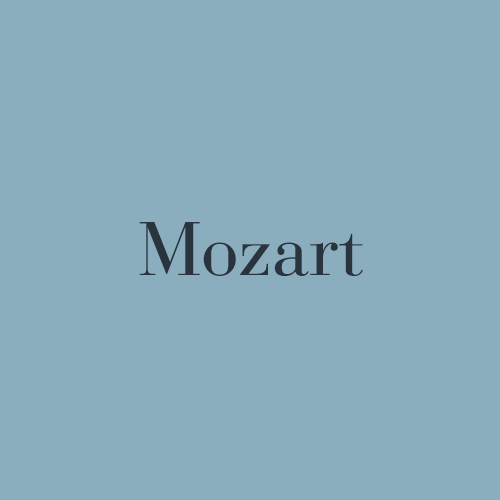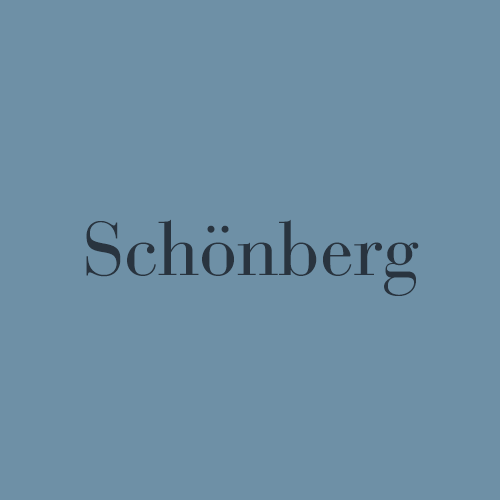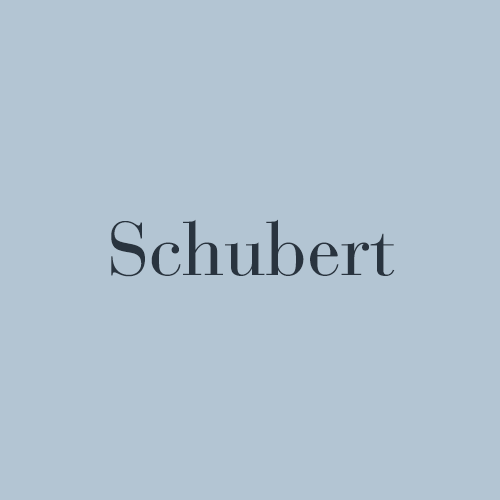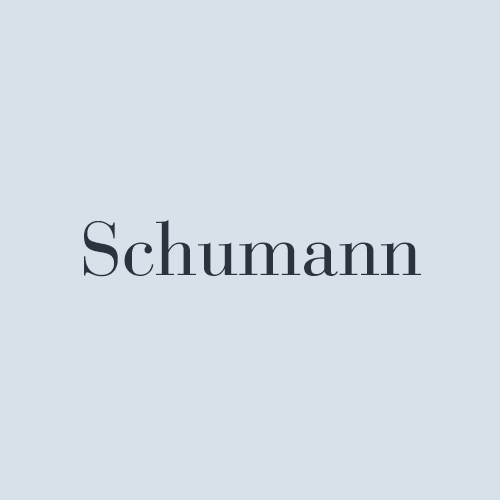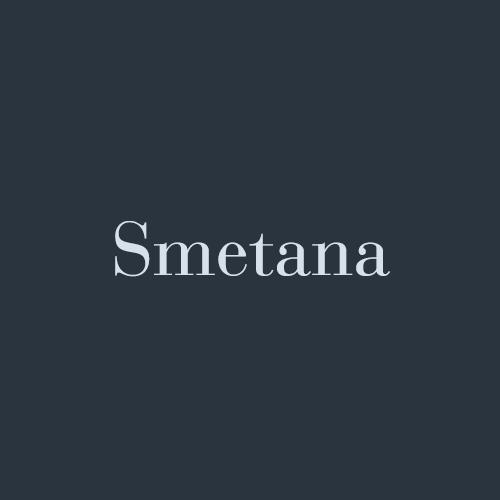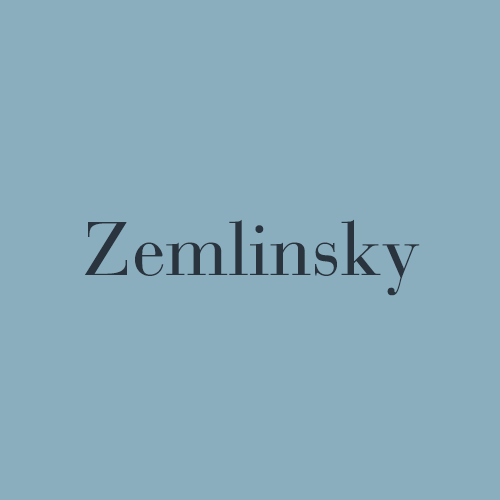In 2022 we are celebrating the string quartet!
Why? Most musicians think of us primarily as being a publisher of piano music or of small chamber music works. But what a lot of people do not know is that over the past few years we have gradually been preparing Urtext editions of all of the core repertoire of classical and romantic string quartets! And these are now available for purchase as parts (blue Urtext editions) and as pocket scores (study editions) in our online shop, as well as in digital format in the Henle Library app.
Our Urtext editions of reference comprise: the complete string quartets by Beethoven, Brahms, Debussy, Haydn, Mendelssohn, Mozart and Schumann. And we also have many other string quartets, including ones by Schubert, Dvořák, Berg, Smetana and others. Why not have a look?
“Henle Edition helps us to see the music through the notes.”
Amber Quartet
Official Henle Ambassadors in China 2022
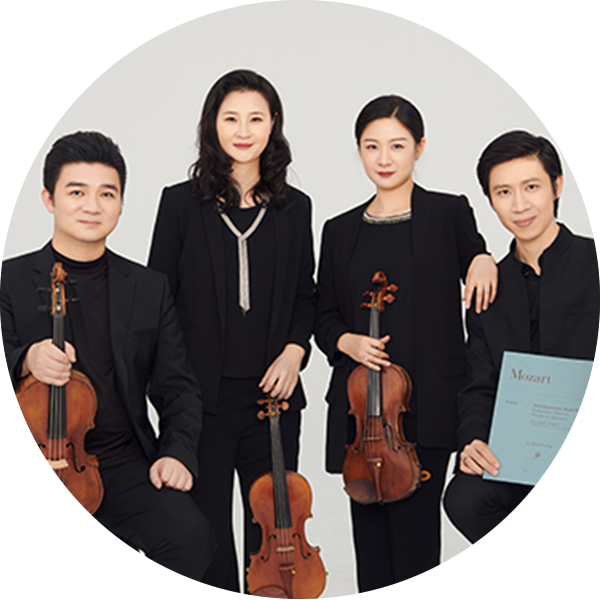
“Henle is with us, everyday, all day ... Thank you for being fabulous!”
Aris Quartett
Germany
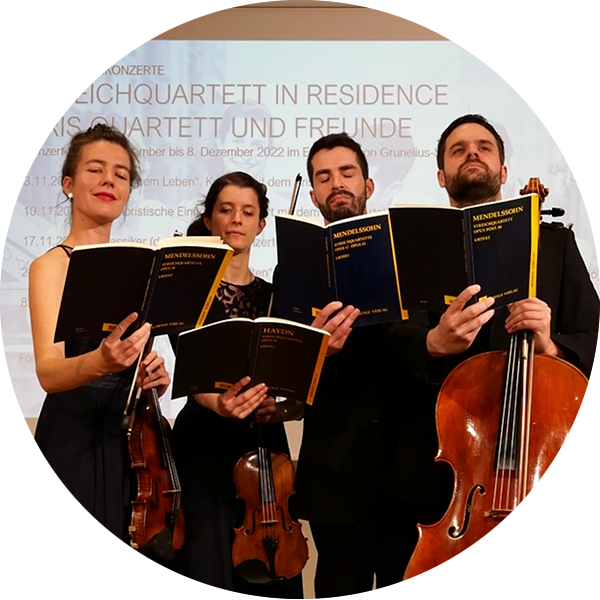
“We are very happy about this unique cooperation with G. Henle Verlag – there is hardly anything more fascinating than studying Mozart autographs together with editor Dr. Wolf-Dieter Seiffert!”
Armida Quartet
on the collaboration for the Complete Edition of Mozart's String Quartets
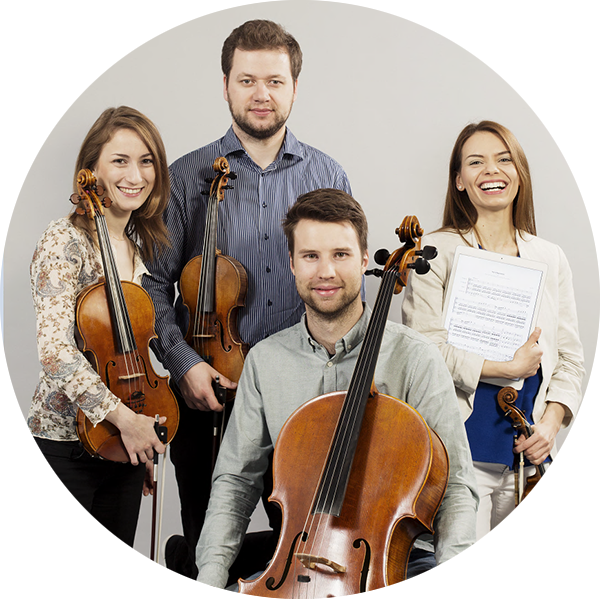
“We love Henle Verlag! All the more so because they are currently publishing many editions of French works that are especially dear to us, and will continue to do so in the years to come.”
Quatuor Ébène
France
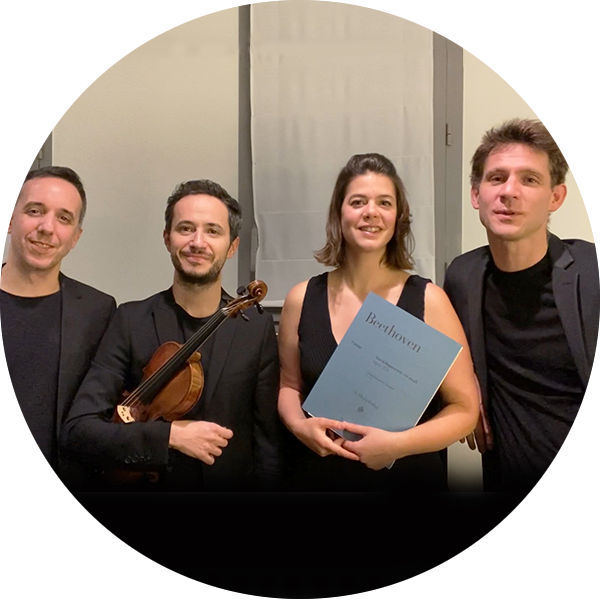
“A huge thanks to G. Henle Publishers for their contribution in accompanying generations of musicians through their musical lives, offering a material of the highest quality. The interest in the Urtext editions we have been used to as a basic ground for our work could just not have been possible without your engagement and support.”
Quatuor Hanson
France
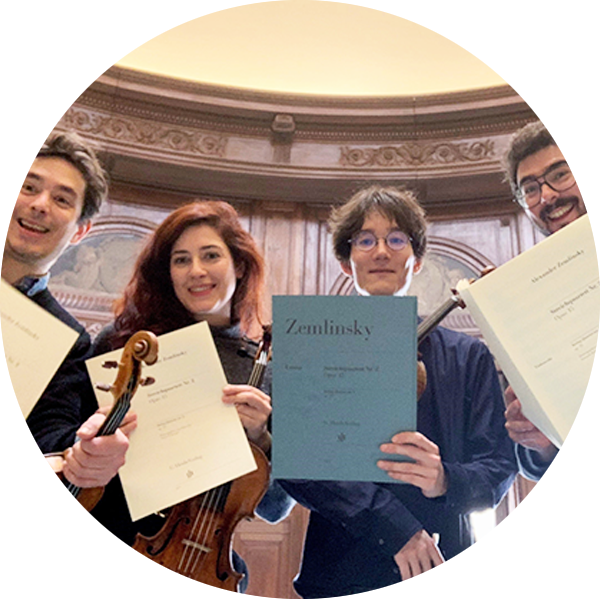
“We trust the research by the editorial staff of Henle, whose editions have, for many years, been our daily companions in working on and practicing music.”
Mandelring Quartett
Germany
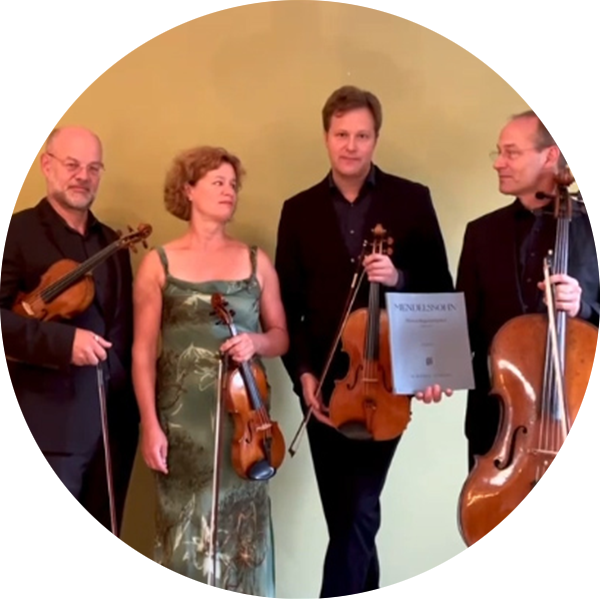
“For us, the composer and his music always comes first, and G. Henle Verlag helps us a lot in this.“
Pavel Haas Quartet
Czech Republic
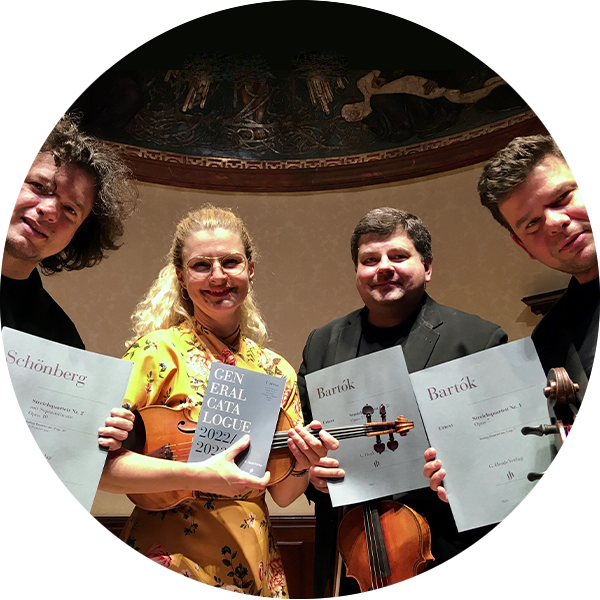
All videos can also be found in our playlist on YouTube.
Amber Quartet is the official Henle Ambassador 2022 in China!
Every moment of an Aris Quartett concert day is accompanied by the Henle Publisher's Urtext scores:
The Armida Quartet has a close and long relationship with G. Henle Publishers. The four musicians provided artistic advice for our editions of all of W. A. Mozart’s string quartets. And they have been using the Henle Library app right from the start.
The Quatuor Ébène loves G. Henle Publishers’ blue Urtext editions. We are delighted to have this wonderful message “en français” and the informative interview with Dr. Wolf-Dieter Seiffert. Merci beaucoup!
The Munich based Henschel Quartett highly appreciates Henle Urtext scores - both, in the printed AND digital version - for the page-turning solutions, the highest musicological standard behind the editions, the readability and the quality of the paper. We are very grateful for the close friendship with those excellent and renowned musicians!
Also in Spain, the henleblue Urtext editions are a must-have for string quartets: The Cuarteto Quiroga uses both, our printed editions as well as the Henle Library app!
For the German Schumann Quartet, the Urtext editions from Henle Verlag are a must for quartet playing, also and especially when playing on stage!
The Henle Library app has become a daily and trustworthy companion for the four brilliant musicians of the Vogler Quartett. And we are glad to have them as our ambassadors and friends:
International string quartet events in 2022/23
Together with top ensembles we will be supporting prominent string quartet events around the world throughout 2022. This will include gifts of scores, money, credits for the Henle Library app, as well as talks about our Urtext editions of string quartets among other things. We will keep you informed as to what is going on via our social media channels.
So, it’s worth popping by now and again! The following list is not yet complete. As soon as events are made public on the organisers’ websites, we’ll be adding them to ours with further information.
2022
- ARD Music Competition 2022
August 29 to September 16, 2022, Munich/Germany - Competition & Festival Quatuors à Bordeaux with Quatuor Modigliani
May 9-14, 2022, Bordeaux/France - Crans-Montana Classics, Master classes with the Jerusalem String Quartet
August 5-13, 2022, Crans-Montana/Switzerland - Ickinger Frühling and Ickinger Konzertsaison
March to December 2022, Icking/Germany - International String Quartet Competition, Wigmore Hall
April 5-10, 2022, London/United Kingdom - Jeunesses Musicales Deutschland with Vogler-Quartett
September 7-18, 2022, Weikersheim/Germany
Exclusive cooperation with ensembles
- Master classes and concerts with the Amber Quartet
January to December 2022, Beijing/China
2023
- String Quartet Summit @ Schloss Elmau with Quatuor Ébène
In cooperation with the Musikhochschule München.
January 26-29, 2023, Schloss Elmau/Germany - 1st International String Quartet Competition Bad Tölz 2023
April 16-20, 2023, Bad Tölz/Germany - Klangwelt Klassik: Public masterclass by Gabriel le Magadure (violin) with the Leonkoro Quartet; concert by the Leonkoro Quartet as a sextet with Marie Chilemme (viola) and Raphaël Merlin (violoncello), introduction: Dr. Wolf-Dieter Seiffert.
23 June 2023, Icking/Germany
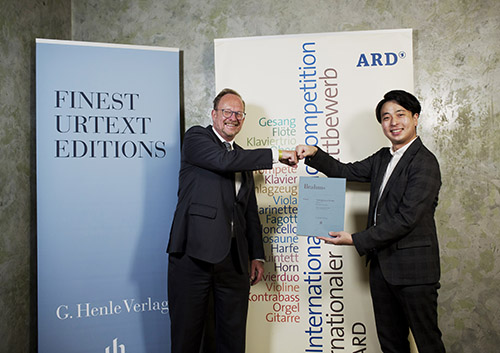
ARD Music Competition 2021
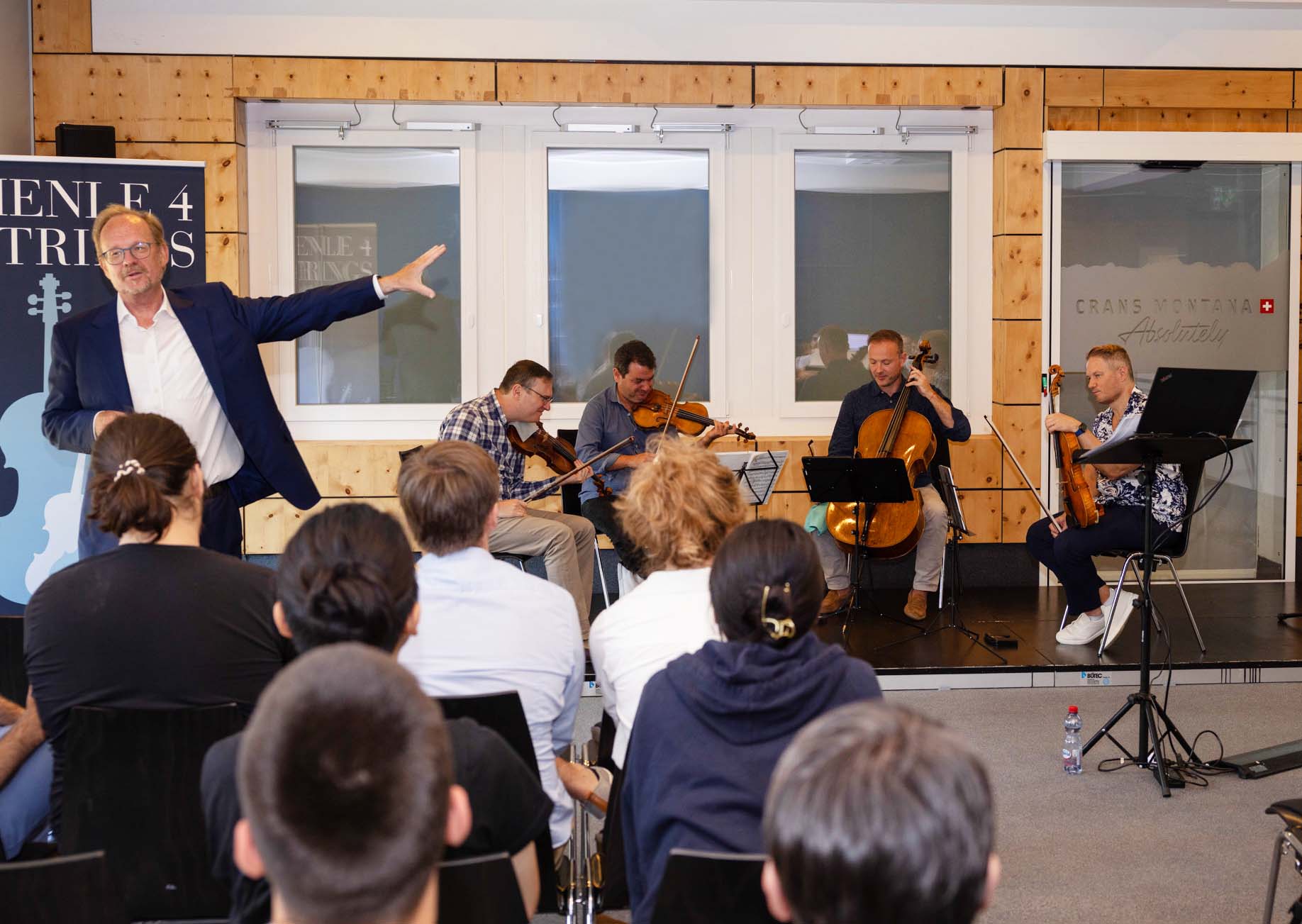
Crans-Montana Classics 2022
© CMClassics_ChabLathion
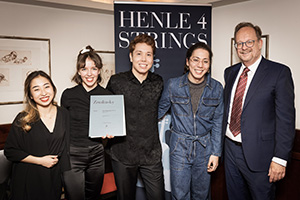
Leonkoro Quartet, winner of the "First Prize", Wigmore Hall International String Quartet Competition 2022, © Ben Ealovega
A special gift for amateur ensembles
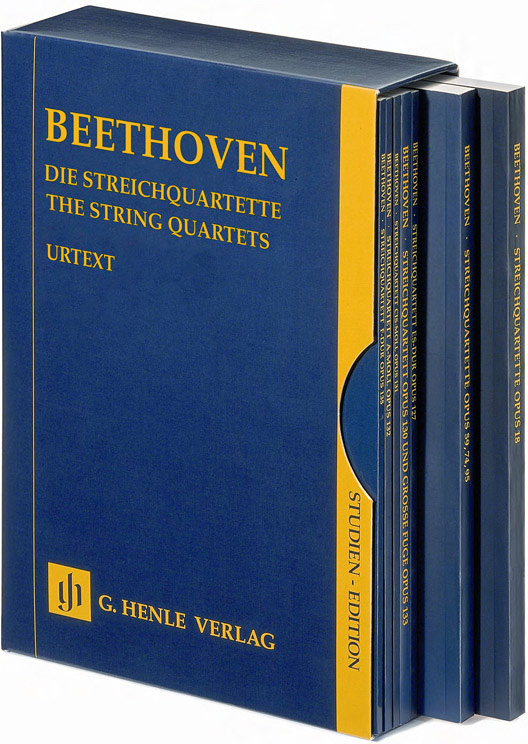
In 2022, we supported several competitions and masterclasses for amateur string quartets by providing a free edition of all of Beethoven’s string quartets (pocket score):
- Baoluoding String Quartet Training Camp, Beijing/China
- Borodin String Quartet Festival, Calgary/Canada
- Cellissimo Cello Festival and Academy, Sofia/Bulgaria
- Cuarteto de los nuevos tiempos (Quartet of new times), Mar del Plata/Argentina
- El cuarteto de cuerda, Toledo/Spanien
- KammerMusikWerkstatt für Erwachsene, Heidelberg/Germany
- Musicameron, Sofia/Bulgaria
- Pacific Blooming Virtuoso Chamber Concert, Bellevue (Seattle)/USA
- 19. Sonntagskonzert: Streichkonzert mit dem "quartetto amabile", Leer/Germany
- State Solo and Ensemble Festival at Oshkosh, Oshkosh (Wisconsin)/USA
- St. Paul String Quartet Competition, St. Paul (Minnesota)/USA – online
- Streichquartettwochen, Bavaria, North Rhine-Westphalia/Germany
- String Quartet Festival 2022, Hong Kong
- Youth string Art Week of Liling, Liling (Hunan)/China
- ZUKUNFTSKLANG AWARD - Internationaler Online Musikwettbewerb, Stuttgart/Germany – online
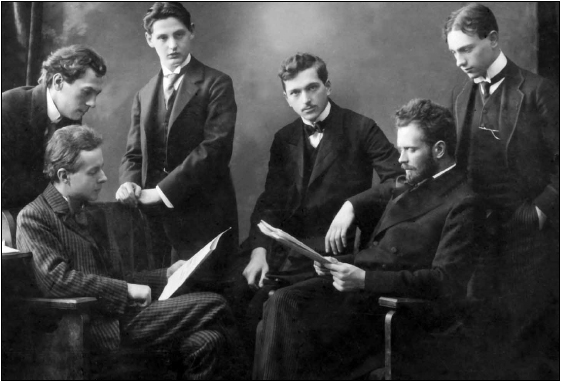
Newly discovered 20th-century classics: Bartók’s six String Quartets in the Complete Edition
September 19, 2022. The Béla Bartók Complete Critical Edition that since 2017 the publisher G. Henle has been publishing jointly with the Hungarian Editio Musica Budapest, has produced an impressive seven volumes in its first five years. From the Works for Piano 1914–1920 to the large pedagogical cycles For Children and Mikrokosmos to a weighty volume of Choral Works and the famous Concerto for Orchestra, these volumes already cover the most diverse areas of Bartók’s oeuvre – though still lacking the chamber music. All the more fitting then that the volume with the String Quartets Nos. 1–6 should appear this spring and hence just in time for the string-quartet year at Henle.
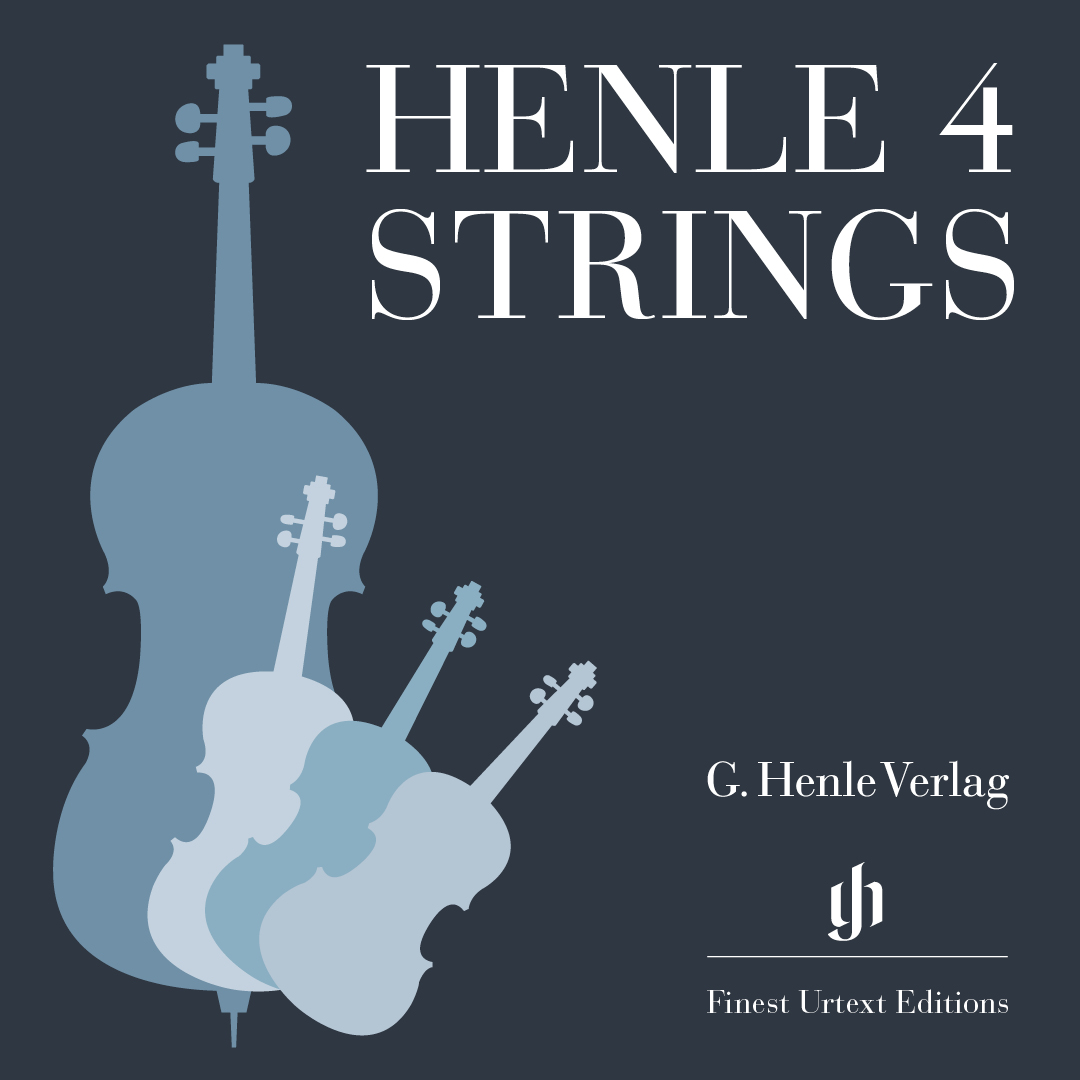
From the First to the Second Vienna School: 20th-century string quartets in the Henle catalogue
July 18, 2022. Henle is dedicating 2022 to a specific genre: under the motto “Henle4Strings” we would like to spotlight our diverse range of Urtext string-quartet editions that might otherwise get somewhat lost in our huge piano-music catalogue. Did you know, for example, that George Gershwin did not compose only for piano or stage, and that in our program we have a truly contemporary quartet composition from 2016…?
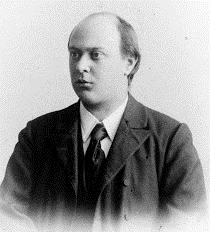
A Milestone in Music History: Schoenberg’s 2nd String Quartet op. 10
April 25, 2022. Arnold Schoenberg, in his letter thanking well-wishers on his 75th birthday in September 1949, said that he had come to terms with the fact that he could no longer count on a full understanding of his work during his lifetime, captioning his statements, partly painfully bitter, partly self-assuredly proud, with the headlining set phrase ‘To gain recognition only after one’s death –– !’.

Four parts, many questions: on the editing of string quartets
March 28, 2022. Well-disposed visitors to our various digital platforms already know that under the motto “Henle4Strings” the focus in 2022 is on the string quartet. So it’s also high time for our blog to start dealing with this topic, especially since – apart from regular reports on the progress of the major Mozart string-quartets project – the genre has not really been properly elucidated here.

Attempt at re-dating Mozart’s three popular “Quartet-Divertimenti”, K. 136–138
May 10, 2021. In conjunction with my Urtextausgabe of the well-known and much-played “Divertimenti”, K. 136–138, just about to be published, it became clear that Mozart’s own, unusually vague dating at the head of his autograph, “Salisburgo 1772”, cannot be entirely accurate. I’m assuming, rather, that he was already working on the composition of these three works in Milan from the late autumn of 1771, only then to finish them in Salzburg at the start of 1772. I’d like briefly to substantiate this hypothesis in this blog post.
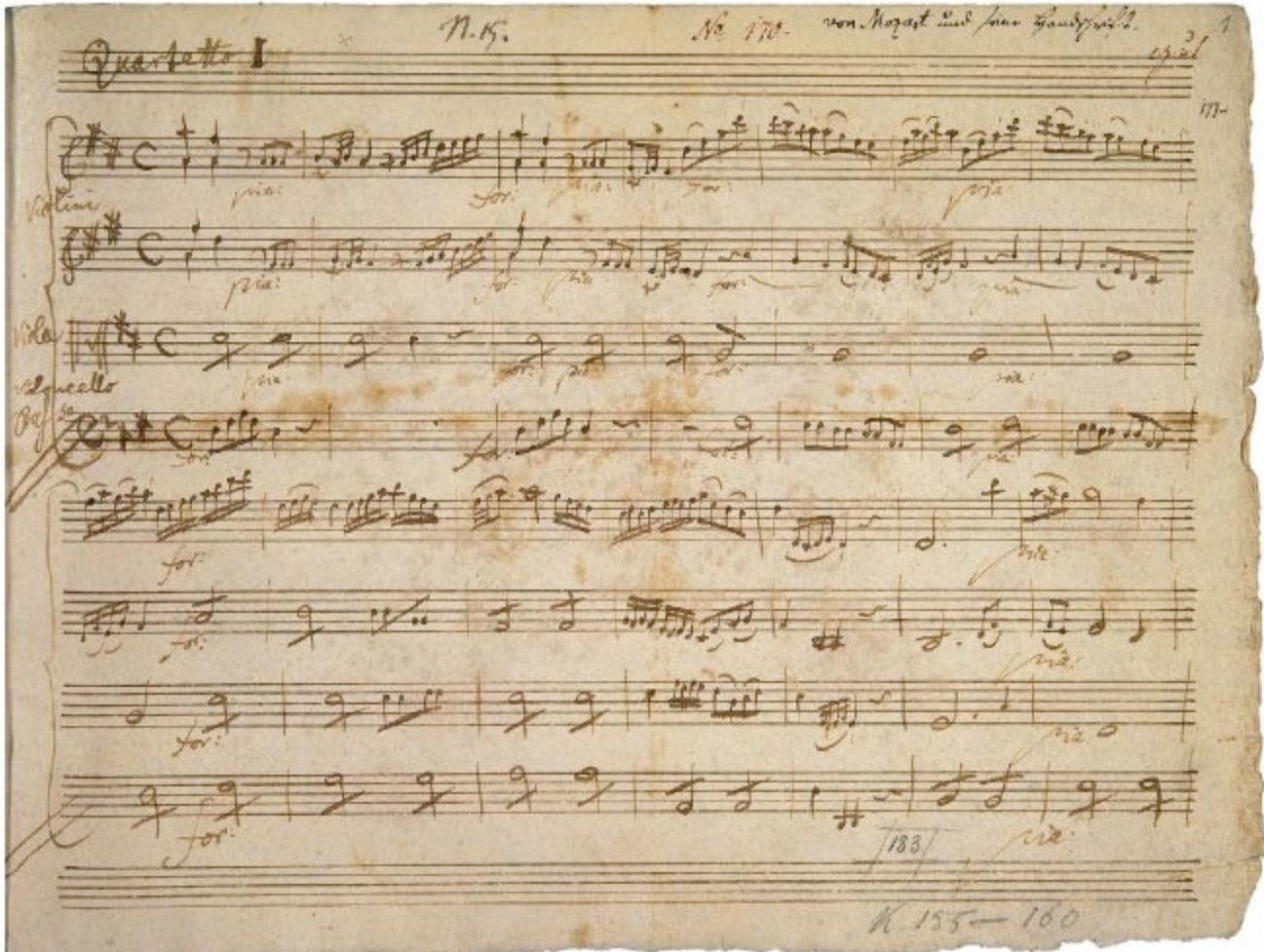
“Bozen this pigsty”. Why there’s no “Bozen string quartet” by Mozart
February 2, 2021. When for the third and last time at the end of October 1772 the Mozart father and son came through the South Tyrolean city of Bozen [Bolzano] on their way to their Milan destination, Wolfgang was hungry and in a foul mood. How else to explain his coarse rhyme about this beautiful city: ‘Bozen this pigsty. || A poem by someone who was foxily-devilishly wild and enraged by Bozen.[:] If I should come to Bozen again, I’d rather beat myself in the private parts.’
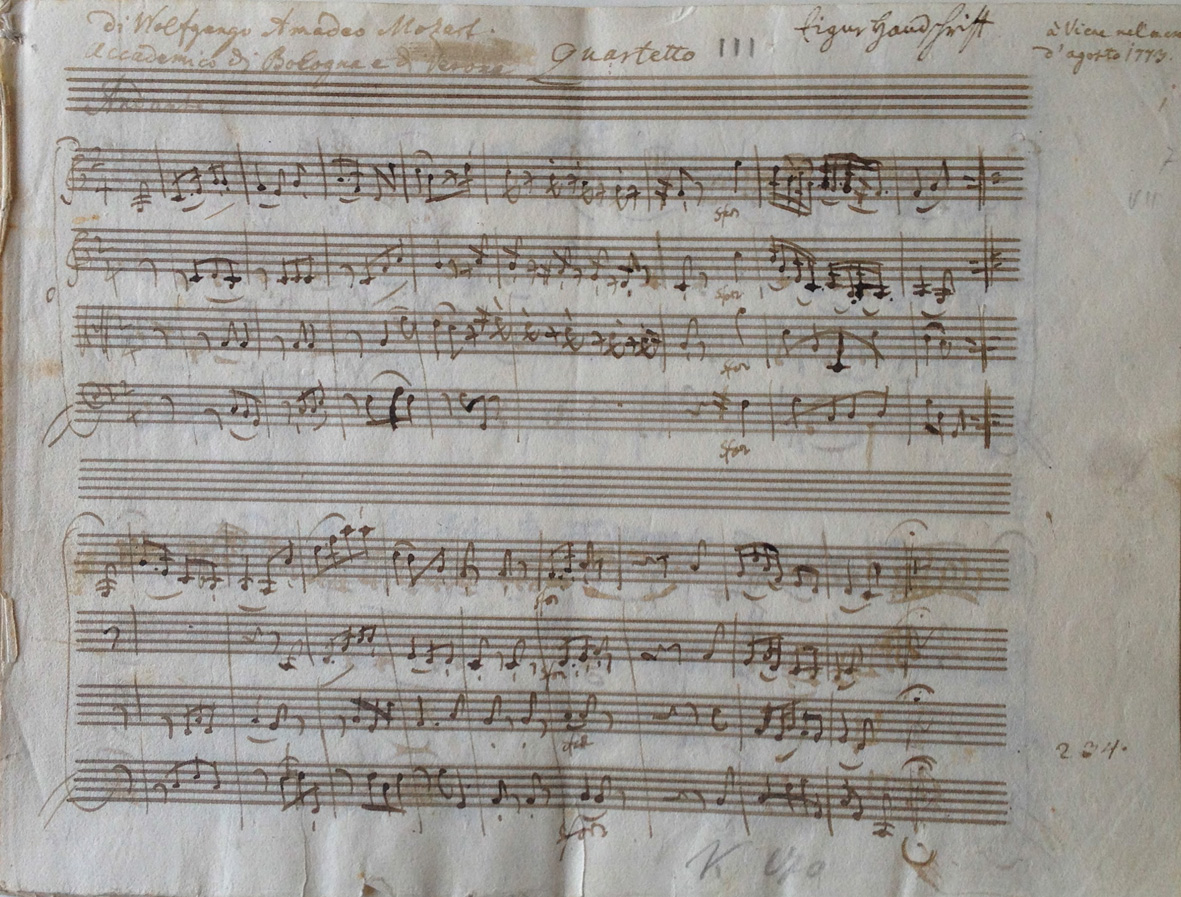
An insightful correction in Mozart’s autograph of the String Quartet in C major K. 170
July 22, 2019. In a few weeks a long-cherished dream of mine will come true: This 2019 autumn we are going to publish Mozart‘s early Viennese String Quartets K. 168 – 173, in Urtext (HN 1121 and HN 7121). To be sure, the text that I’ve edited and our production team has magnificently typeset and printed will not be presented as any totally “new Mozart”, but in the end will feature in detail many, many improvements for the quartet-playing profession.
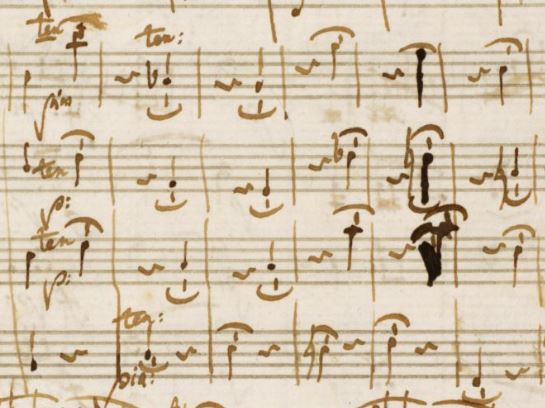
An unaccountable (?) fermata notation in Mozart’s string quartet K. 428
January 7, 2019. That Mozart, when writing carefully, graphically distinguishes between the dot and the stroke, ought to be beyond dispute to anyone knowing his handwriting. Though here we’re not going to argue about the performance-practice significance that this graphic distinction may or may not have. Today I want to present an extremely odd “stroke” notation of Mozart’s.
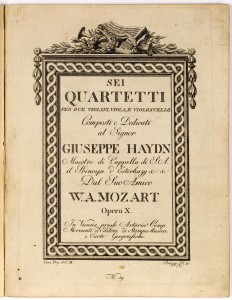
“Lunga e laboriosa fattica” – Attempting to interpret Mozart’s c-minor trio from the String Quartet K. 465/iii
October 30, 2017. When the composer’s autograph manuscript of a music work is extant, then we have a unique opportunity of “looking over the creator’s shoulder” as the ideas are being written down. The mysterious creative process is nevertheless revealed only to those who can then question the existing autograph text, going beyond what is purely philological, editorially speaking. It is my firm conviction that here autograph corrections are the ideal way to start. The musico-analytical curiosity that asks of a correction, “Why?”, in qualitative terms, opens a door otherwise forever closed.
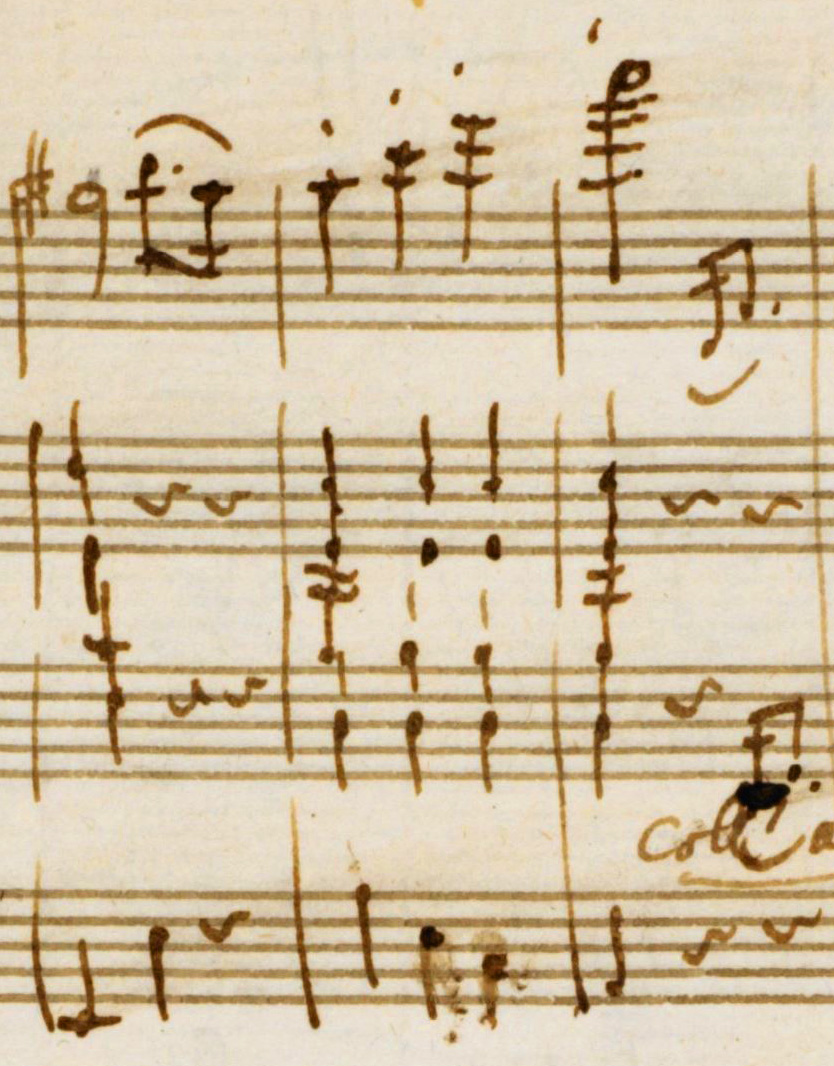
Non-stop “lombardic” rhythm? On a minute text problem in Mozart’s d-minor String Quartet K. 421
July 3, 2017. The exceptionally lighthearted D-major Trio of the Menuetto in Mozart’s otherwise so darkly dramatic d-minor String Quartet K. 421 has always been one of my favourite pieces. The first violin, with its “pizzicato” accompaniment by the lower strings, cleverly plays there with reminiscences of folk music: on the one hand, it is quite obviously striking up a yodel, recognisable by the simple triadic melodicism flipping repeatedly from “chest” to “head” voice, just like a real alpine yodler; on the other, the entire movement is almost prototypically pervaded by the so-called “lombardic” rhythm, unmistakeable signs, for instance, of Scottish, Hungarian or Slavic folk music (recognisable in the inverse-dotted, syncopated rhythm):

The charm of the unsettling. A special autograph correction of Mozart’s in the finale of the F-major string quartet K. 590
September 19, 2016. Mozart connoisseurs and admirers know of course about what is bizarre in the finale of his very last string quartet, K. 590. In its development the harshness of the tone language is particularly unparalleled in the Mozart oeuvre. But the unsettling already starts shortly before the end of the first section: The otherwise so airily sparkling sixteenth notes stall all of a sudden in an almost stranded-like repetitive three-note kink. It is just this spot that Mozart vehemently corrected in his manuscript. The investigation of this correction offers us at hand an analytical key to the understanding of this absolutely special movement.
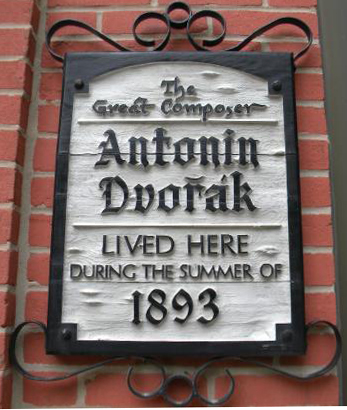
A Bohemian in America: Is Dvořák’s String Quartet in F Major wrongly accented?
November 9, 2015. Antonín Dvořák, director of the National Conservatory of Music in New York City, 1892–95, composed the String Quartet in F major op. 96 early in the summer of 1893 in Spillville, Iowa, where he went to spend his vacation. It is, as he specifically recorded on the autograph of the score, his second composition to originate in the United States, for it was directly preceded by the famous 9th symphony with its much-discussed leanings on the traditional music of native Americans (Indians) and Afro-Americans.
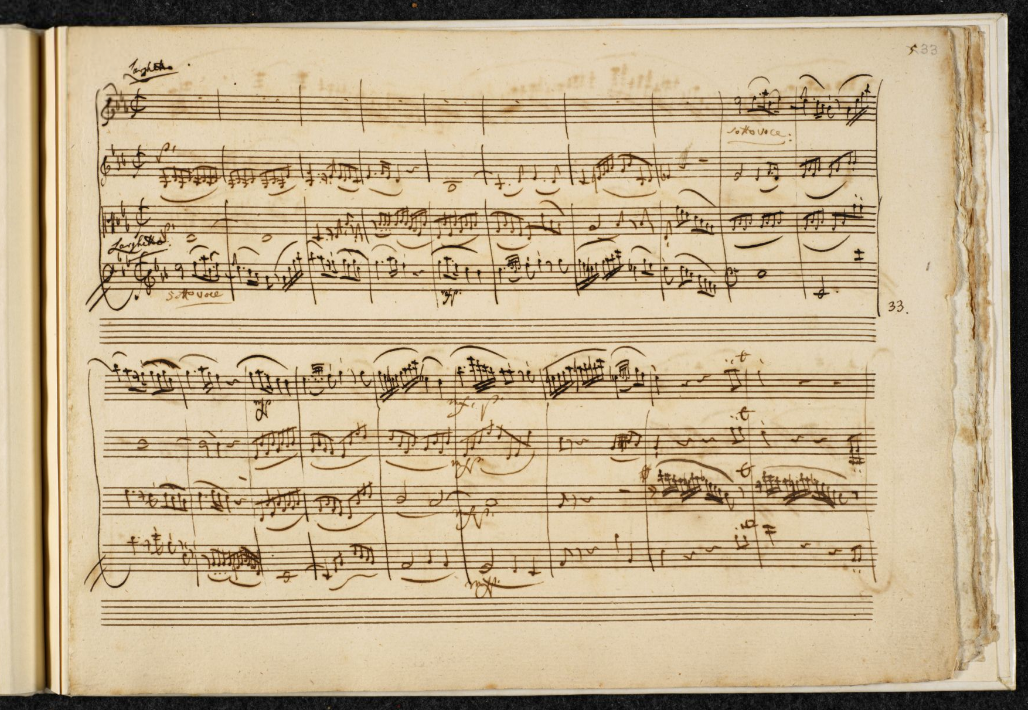
“It’s all so wonderful!” On the new edition of Mozart’s string quartets
December 8, 2014. A few weeks ago I began editorial work on a group of compositions that I have long been involved with and that I adore: Mozart’s string quartets. G. Henle publishing house will publish them complete in my new Urtext editions (parts and scores). Appearing at the end of 2015 as the first fruits of this painstaking labour will be volume 4: the “Hoffmeister Quartet” KV 499, as well as the three “Prussian Quartets” KV 575, 589 and 590. The rest of the string quartets in chronologically reverse order will then follow in the coming years.
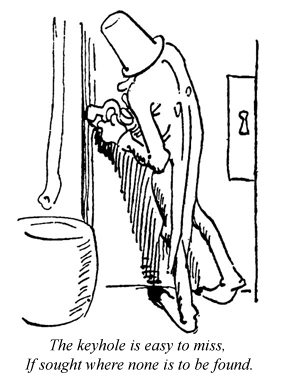
Where does the key/clef go? About a problematic passage in Schumann’s F-major string quartet
July 7, 2014.
Fans of the humourist Wilhelm Busch will certainly be reminded of the story of Master Zwiel who, upon returning from a tavern on a cold winter’s night, stands at his front door with key already in hand and vainly seeks the keyhole.
The story ends tragically: Master Zwiel loses the key and falls while searching for it into a water barrel where he finally freezes to death.


